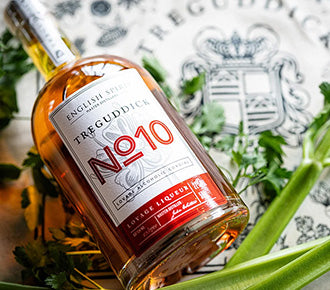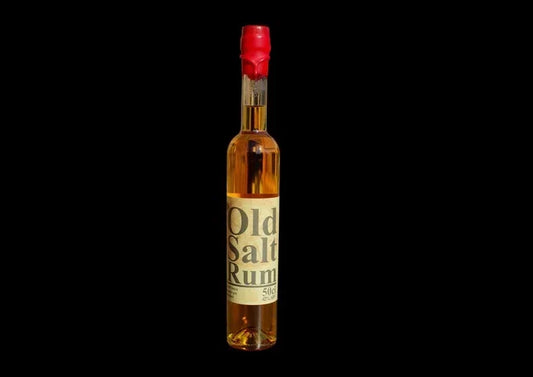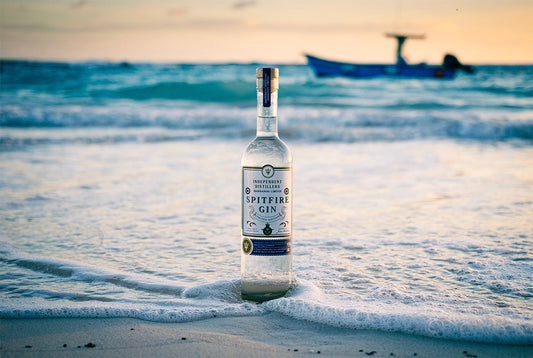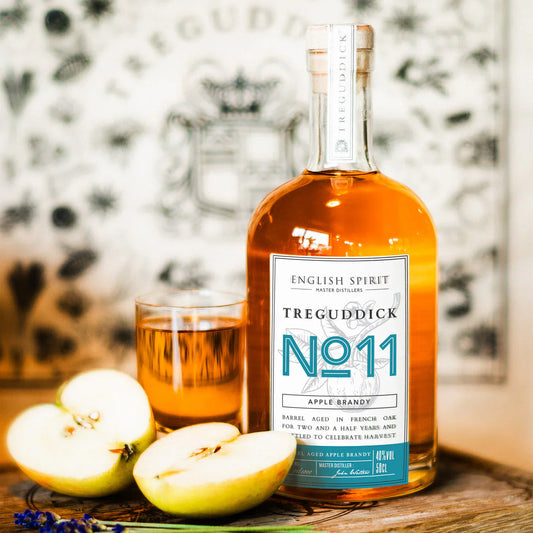People have used lovage for a very long time. Its unique flavour of bitter celery combined with light anise has added a seductive charm to many a sauce, broth, stew or meal, as well as transformed a panoply of alcoholic drinks and been included in the contents of many a medicine cabinet down through the ages. So much so that it is worth a closer look, shall we….
Lovage was used by the Greeks and Romans, who valued it for its medicinal properties, including aiding digestion. It was a natural candidate for infusing alcoholic drinks, as they often consumed alcohol for health reasons.
The Greek's called it "ligustikon"; the great physician Dioscorides, in his pharmacopeia "De Materia Medica" (first century AD), used it for digestive ailments and as a diuretic, along with a broad range of other uses, attributing to it panacea-like benefits. Maybe he had a lovage farm?

When the Roman's took the reins they pressed on with lovage too. Pliny the Elder, in his encyclopedic work "Natural History" (first century AD), used it for both culinary and medicinal purposes, claiming it was good for aiding digestion and as an expectorant. Three hundred years on, in a collection of Roman recipes called Apicius, it was still going strong, having established a popular place in Roman cuisine.
Saunter forward another four hundred or so years to the late 8th and early 9th Century and lovage took another step up into inclusion in many herbal compendia, perhaps most notably in "Capitulare de villis," a text attributed to Charlemagne that listed medicinal plants to be grown in his domains. Its very unlikely that Charles The Great (as he was also known) did much in the way of orthodox gardening; after all having taken to high office following the demise of his father Pepin the Short (I am not making this up), he was caught up co-ruling with his brother Carloman I until he popped his clogs in 771. Next he had a go at Italy becoming King of the Lombards in 774 and one thing followed the other until Pope Leo III crowned him Emperor on Christmas Day in 800. Not a career herbalist one might surmise.
Its unique flavour of bitter celery combined with light anise has added a seductive charm to many a sauce, broth, stew or meal
Thankfully, we have the advocacy of Hildegard of Bingen, a well-known German Benedictine abbess and herbalist of the 12th century, who really did love a bit of lovage and she shoehorned it into such well known page-turners of the day as “Physica” and “Causae et Curae.” She espoused its therapeutic properties of relieving abdominal and heart pain!
Down through the ages Lovage had more quackery attached to it and its use extended to wherever anyone could make a buck. There is some gentle modern day scientific support for relieving digestion and the farts through relaxing gastrointestinal smooth muscle. Like many herbs it has a diuretic property, it may even contain some anti-inflammatory compounds and, like almost all plants, contains some antioxidants.
That said it is probably best known as the base of JR Philips & Co's Lovage Cordial, which we have covered off in another blog piece. Interestingly, JRP was best known as a sherry blender and its most famous product, Bristol Cream!
Not all herbs stand up to our modern palates, but I would encourage you to give lovage a go. The seeds are freely available on Amazon and grow as simply and quickly as parsley - which is a family member. The distinct aroma is a really good addition to chicken, pork or brill (to name just a few options).
A quick recipe is a simple sauce for any of the three above: a couple of shallots sliced thinly length ways, cooked through in butter with no colour. Add one large glass of our lovage liqueur, reduce on a medium heat until the alcohol has gone. Then add one large glass of chicken stock, reduce by a half. Next a tablespoon of any mustard you like, two tablespoons of grated comte and half a large glass of double cream. Black pepper and freshly chopped parsley to taste and reduce to the thickness you prefer. Delish!
Whilst lovage has a distinctive taste it's certainly one to keep in your organoleptic arsenal, give it a whirl!
All my best,
Dr. J









